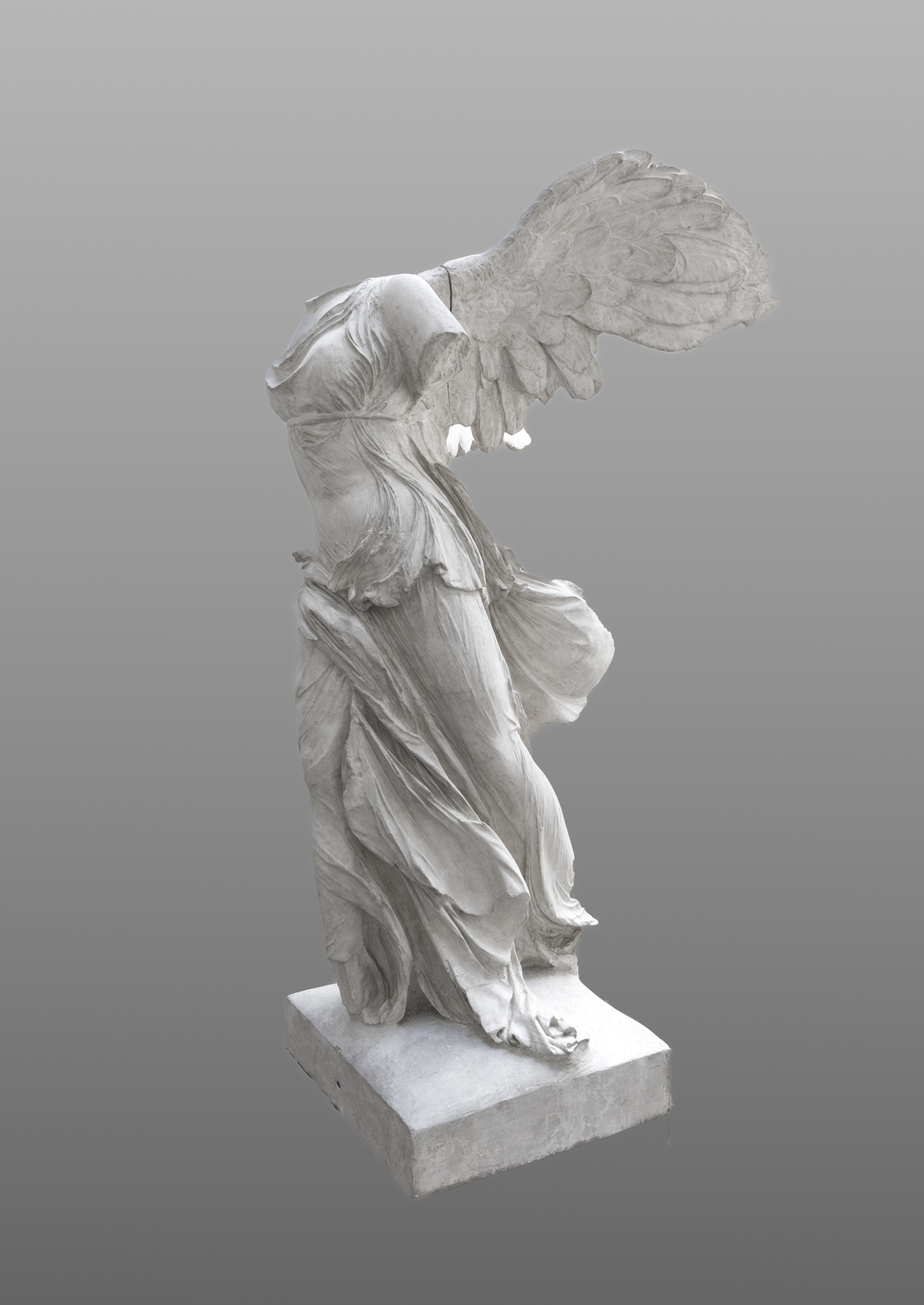
Nike från Samothrake Konstakademien
About. Transcript. Nike (Winged Victory) of Samothrace, Lartos marble (ship) and Parian marble (figure), c. 190 B.C.E. 3.28m high, Hellenistic Period (Musée du Louvre, Paris). The sculpture was unearthed in 1863 after its discovery under the direction of Charles Champoiseau , the French Vice-Consul to Turkey.
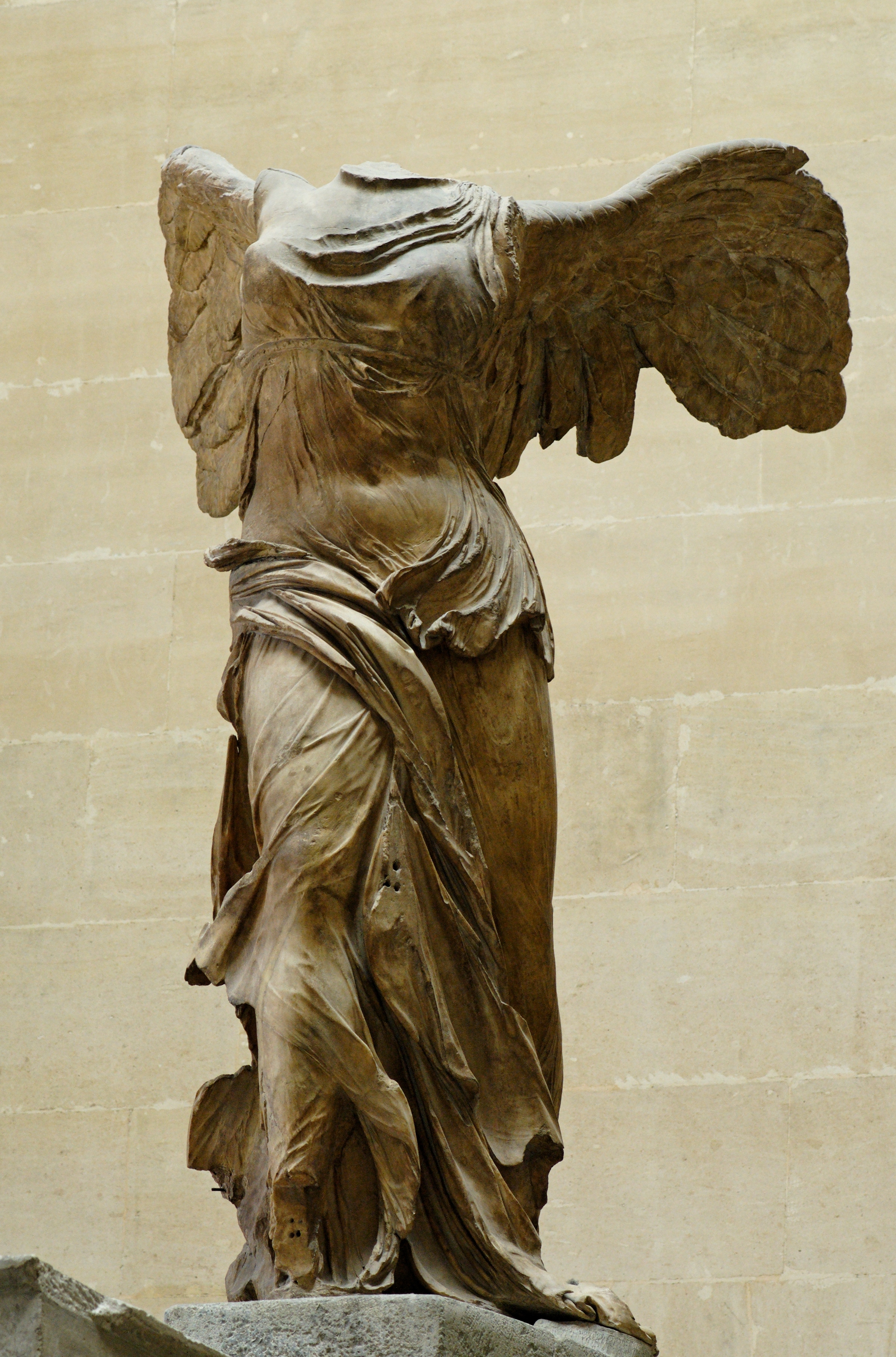
Nike von Samothrake
Nike från Samothrake (grekiska: Νίκη της Σαμοθράκης) är en 245 [1] centimeter hög marmorskulptur föreställande den grekiska segergudinnan Nike.Skulpturen är ett av den hellenistiska konstens [2] största mästerverk.. Den restes omkring 190 f.Kr. [1] av invånarna på den lilla ön Samothrake i norra Egeiska havet för att högtidlighålla minnet av segern i ett sjöslag.
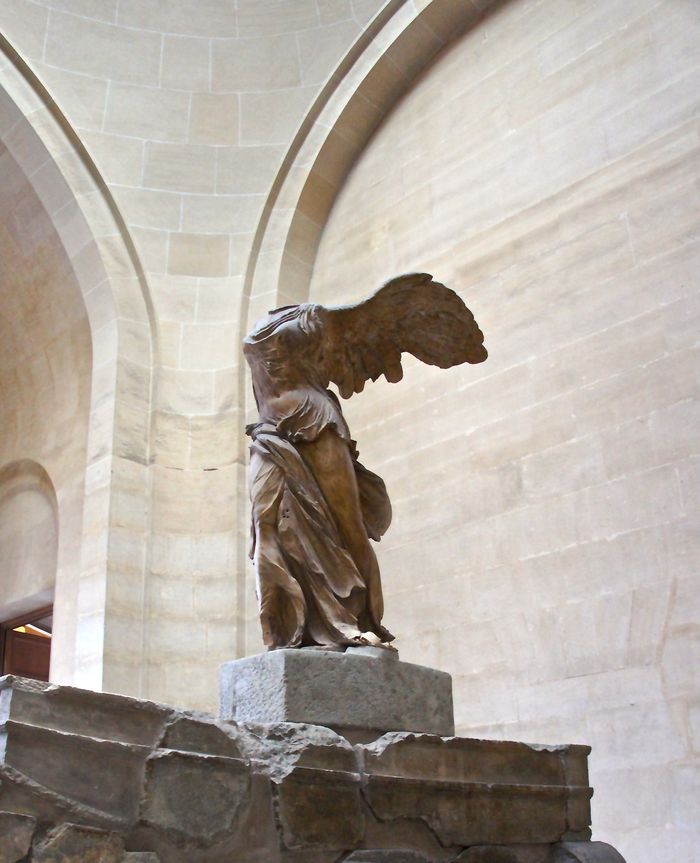
Louvren, Nike från Samothrake People in the Street
One of the most celebrated works of Hellenistic art is without doubt the Nike of Samothrace, on display at the Louvre since 1884 CE. The white Parian marble statue represents the personification of winged victory. In a sense, the impact of the 2.75 m high statue is even greater now because the head and both arms of the goddess are missing.
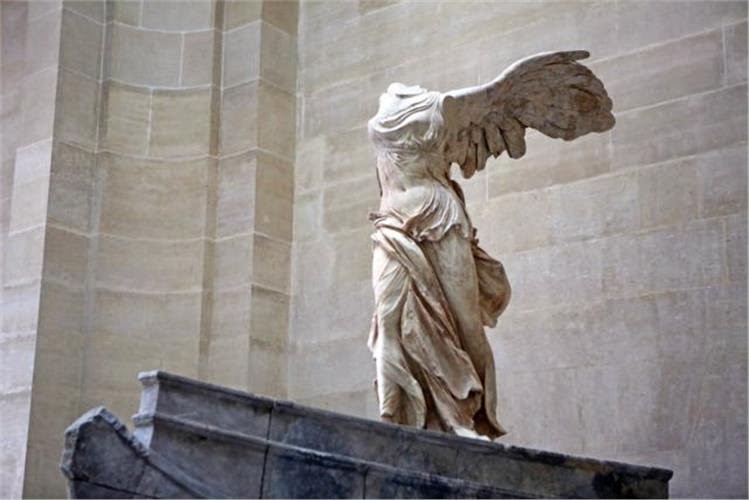
The Nike of Samothrake is back in the Louvre Baring the Aegis
Nike din Samothrace; Metadata. This file contains additional information such as Exif metadata which may have been added by the digital camera, scanner, or software program used to create or digitize it. If the file has been modified from its original state, some details such as the timestamp may not fully reflect those of the original file.

Winged Nike Victory of Samothrace Cast Marble Greek Statue Sculpture 14.17in
The Nike of Samothrace statue is named after the island on which it was found, situated to the north of the Aegean Sea.Now housed at the Louvre Museum, it is not known who made the Winged Victory of Samothrace, but it is believed to have been ordered to be built by Demetrius Poliocretes sometime between 295 and 290 BC.It is a Hellenistic-era Greek sculptural masterwork and depicts the goddess.

Bilder för 1931044. SKULPTUR, Nike från Samothrake, grönpatinerad brons, med tillhörande sockel
Nike (Winged Victory) of Samothrace. Standing at the top of a staircase in the Musée du Louvre in Paris, the Nike of Samothrace looks down over her admiring crowds. One of the most revered artworks of Greek art, the Nike has been on display in the Louvre since 1866. The statue was brought to France by Charles Champoiseau, who found it in.
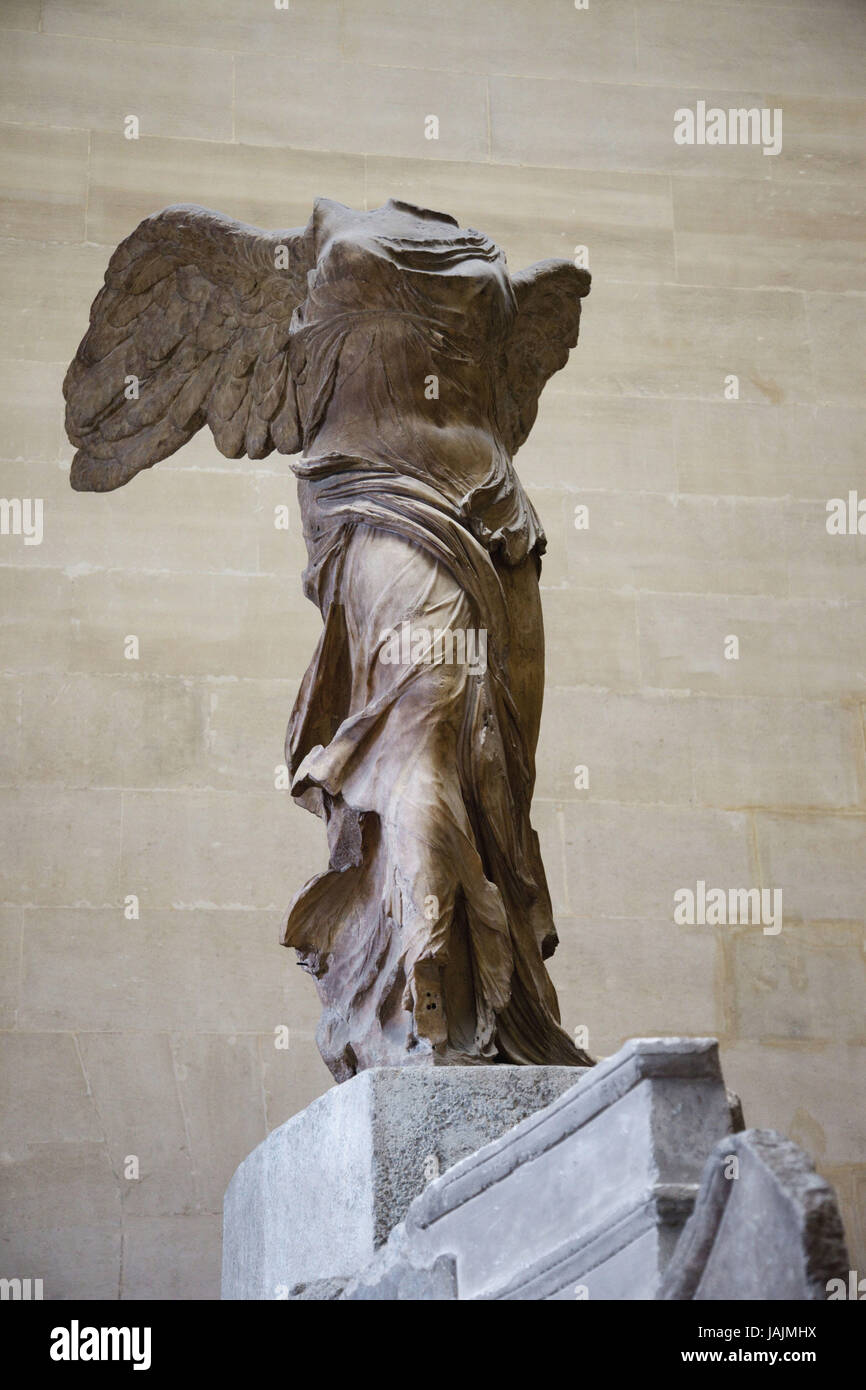
France,Paris,Louvre,Nike of Samothrake Stock Photo Alamy
Svenska: Nike från Samothrake ไทย: อนุสรณ์ชัยชนะที่ซาโมเทรซ Tiếng Việt: Tượng thần chiến thắng Samothrace

Nike från Samothrake Jennys bilder
Nike från Samothrake Den stora glastäckta ljusgården mitt i akademihuset kallas Nikehallen och skapades på 1890-talet. Nike är segergudinnan i den antika grekiska mytologin. Buren av sina vingar följer hon alltid Athena, den strategiska krigföringens gudinna. Men Athena, eller Minerva som hon kallades i det antika Rom, var också vishetens gudinna och konsternas beskyddare. Det […]

Bilder för 1931044. SKULPTUR, Nike från Samothrake, grönpatinerad brons, med tillhörande sockel
Nike of Samothrace-Academy of Arts, Architecture and Design-Prague.jpg 2,448 × 3,264; 5.6 MB. Nike of Samothrace-Metropolitan Museum of Art.jpg 2,448 × 3,264; 4.34 MB. PikiWiki Israel 31998 Last Supper with Broken Obelisk.jpg 1,000 × 667; 663 KB. Préfecture Toulouse JEP 2013 09.JPG 2,848 × 4,288; 2.96 MB.
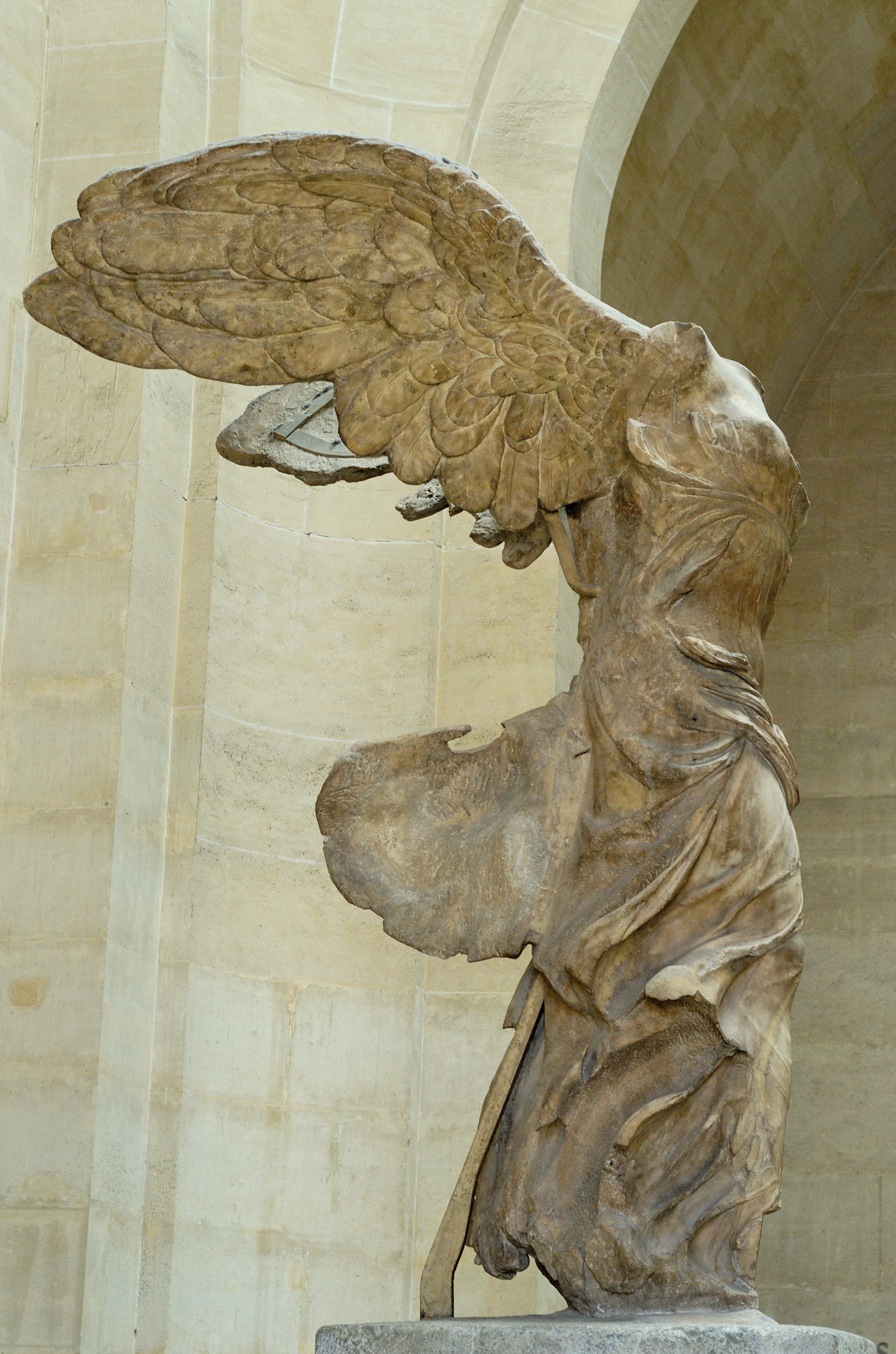
FileNike of Samothrake Louvre Ma2369 n3.jpg Wikimedia Commons
Nike fra Samothrake. Nike fra Samothrake ( gresk Νίκη της Σαμοθράκης, Niki tis Samothrakis) [1] er marmorskulptur av den greske gudinnen Nike (representerer seier). Siden 1884 har den blitt prominent utstilt i Louvre i Paris og er en av de mest berømte skulpturer i verden. Det er ytterligere to statuer som ble funnet i.

Nike of samothrace. Nike of samothrace, Samothrace, Greek statue
Nike fra Samothrake. Den kendte skulptur Nike fra Samothrake er lavet ca. 200 f.Kr. i antikkens Grækenland. Skulpturen forestiller den græske mytologiske sejrsgudinde Nike og er udstillet på kunstmuseet Louvre i Paris . Nike fra Samothrake udgør sammen med Mona Lisa og Venus fra Milo de tre mest berømte værker på Louvre. [kilde mangler]

Skulptur "Nike von Samothrake" (54 cm), Kunstguss ars mundi
Svenska: Konstakademiens gipser, Nike från Samothrake är en 244 centimeter hög marmorskulptur, som i den antika grekiska mytologin föreställer segergudinnan Nike. Skulpturen restes omkring 190 f.Kr. av invånarna på den lilla ön Samothrake i norra Egeiska havet för att högtidlighålla minnet av segern i ett sjöslag.
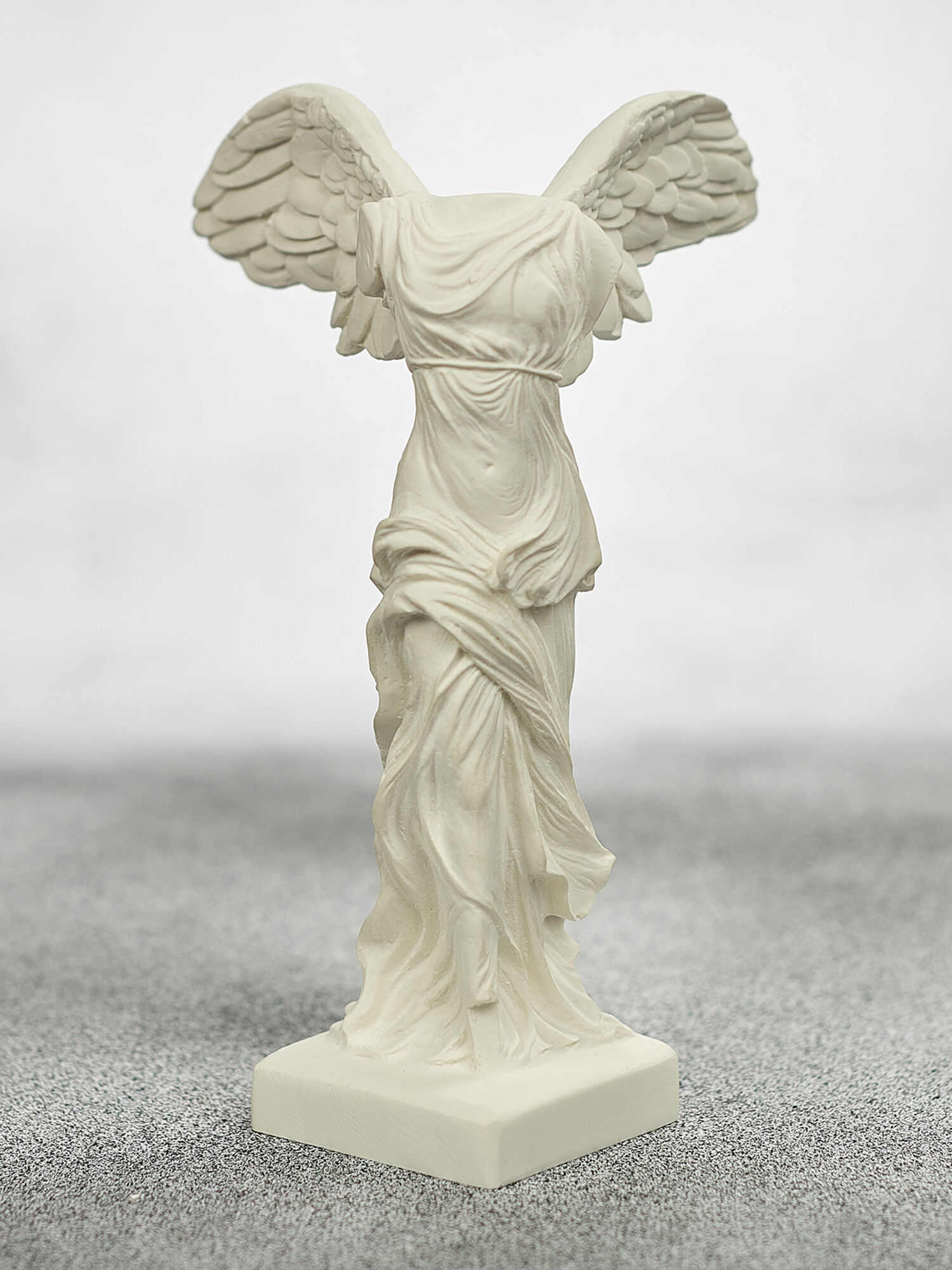
Filigrane Skulptur der Nike von Samothrake Römer Shop Der Römer S
Nike of Samothrace (winged Victory), Lartos marble (ship), Parian marble (figure), c. 190 B.C.E., 3.28 meters high (Louvre, Paris; photo: Steven Zucker, CC BY-NC-SA 2.0) Nike's wings are a mastery of marble construction. Marble is a heavy material, and compositions that included large protruding, unsupported, large elements such as the wings.

Bilder för 2701625. SKULPTUR, "Nike från Samothrake", grönpatinerad brons, FFA Fondeur.
The winged goddess of Victory (Nike) overlooked the Sanctuary of the Great Gods on the Aegean island of Samothrace. Shortly after its discovery a pedestal in the form of a ship's prow was found; it is likely that the sculpture, with the strong wind blowing through her garments, commemorated a naval victory. Part of her right hand was.

Bilder för 2056731. SKULPTUR, efter Nike från Samothrake, samtida produktion, grönpatinerad
Nike från Samothrake; Metadata. This file contains additional information, probably added from the digital camera or scanner used to create or digitize it. If the file has been modified from its original state, some details may not fully reflect the modified file. Camera manufacturer: NIKON CORPORATION:

Nike of Samothrace sculpture Britannica
Samothrace (Samothrake) is a Greek island in the northern Aegean which was prominent from the Classical period as a member of the Delian League. Its greatest claim to fame was as a cult centre favoured by Macedon and visited by pilgrims from across the Aegean. Its name today is best known for the magnificent Hellenistic Nike sculpture, the Nike.